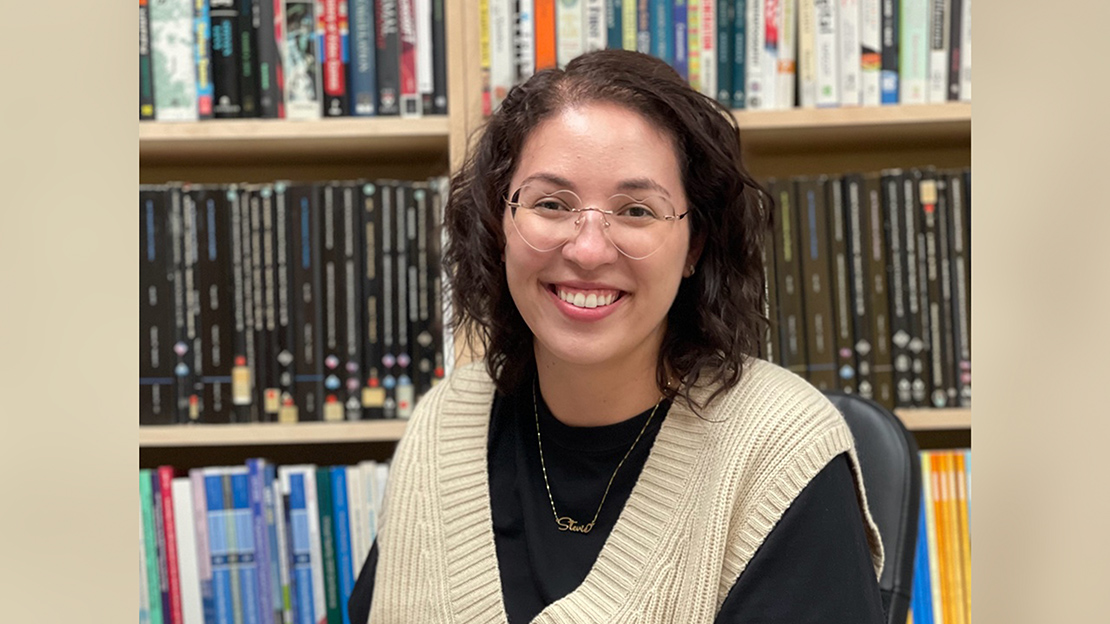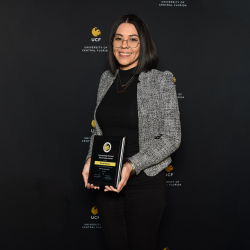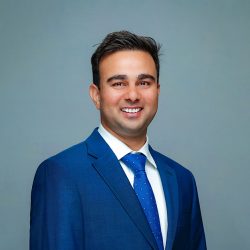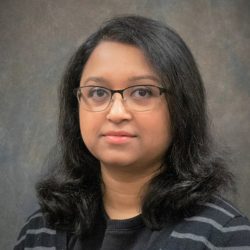Stephanie Carnell
Gainesville, Florida
College of Engineering and Computer Science
Research Focus:
Virtual reality for communication skills educationSince Stephanie Carnell, PhD could remember, she has been captivated by stories—how they are told, how they’re shared, and what people share. Inspired by her love of stories and language, she took this passion and applied it to her work on using virtual reality for communication skills education. During her time at the University of Florida earning her doctoral degree in Human-Centered Computing, she became inclined to join Dr. Carolina Cruz-Neira upon hearing a talk presented about virtual reality experiences. It was during this time that she began the work that she is continuing now as a Post-doctoral researcher.
First, Carnell created simulations with virtual humans that healthcare students could practice interviewing to improve their interactions with real patients. These virtual humans are computer characters that can be programmed to respond in specific ways based on how someone interacts with them. “Virtual humans work very well for communication skills practice because they can provide the same training experience to a large number of learners and can potentially introduce the learners to situations that would be hard to replicate in the real world,” she says. These health care virtual humans have been used by hundreds of students around the world and she continues to be motivated by the ability to create virtual experiences that help people grow in real life.
Now while at UCF, Carnell is creating new simulations to support individuals who are learning a new language. “Initially, I became interested in working with virtual humans because they provided an opportunity to combine my interests in two fields: computer science and language.” Because people often respond to virtual humans in a similar manner as they do to real humans, so examining the language people use in the simulations has intrigued her. “After working in this field, I’ve also come to realize how impactful working on these kinds of communication skills applications can be,” she says. Although she began her post-doctoral work at the university during the pandemic, she says, “Starting a new job during the pandemic was a strange experience, but everyone at UCF has been extremely welcoming and friendly! Everyone I’ve met has been very supportive of both my professional development and my research.”
Carnell’s advice to students and researchers is, “Don’t be afraid to discuss and share your ideas and interests, no matter how ‘out there’ they may seem. You never know what opportunities might arise that need your exact perspective!” Currently, she is working alongside a fellow postdoctoral scholar to create the UCF Postdocs Association. Inspired by her curiosity, Carnell plans to continue working on virtual reality that improve people’s lives at her own research lab after completing her studies.
Highlights:
- UCF Virtual and Augmented Reality Lab
- First Native American woman to receive her PhD from the UF CISE department
Olivia Newton
Olivia Newton 13 ’17MS ’22PhD is a second-generation Mexican American, a three-time graduate from the UCF and a woman excelling in a field significantly underrepresented by Latinas. Latin women hold less...
Melody Halbert
As the child of a Chinese immigrant mother and a Scots-Irish American father, Melody Halbert knows the value of community. Watching her mother, who moved alone to the United States...
Amrita Goswamy
Around the world, someone dies from a road accident every 25 seconds. About 1.35 million people die annually on roads worldwide, and another 20 million to 50 million are seriously...




